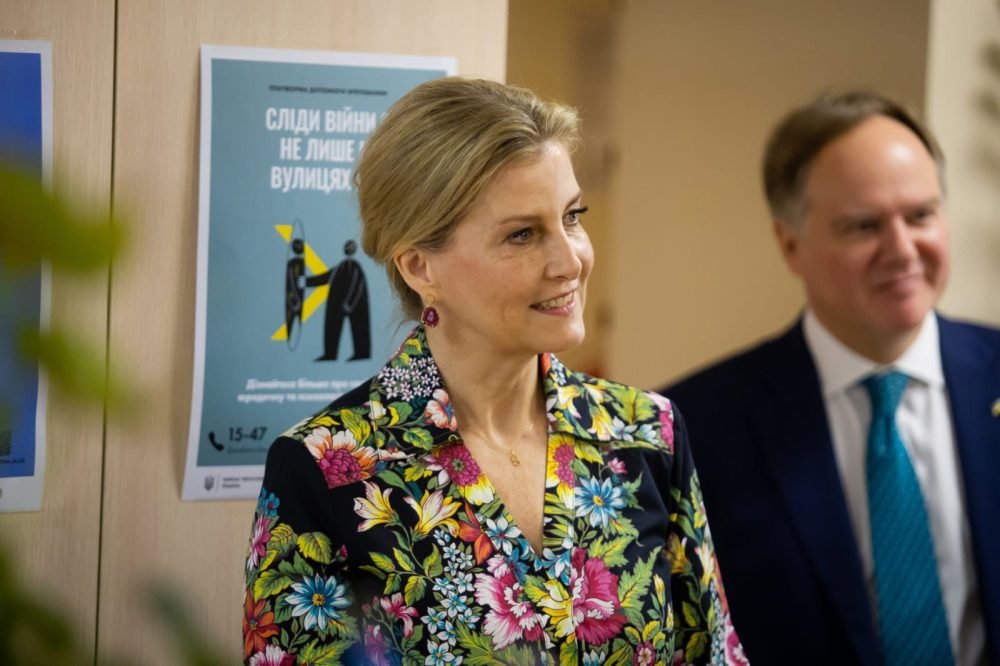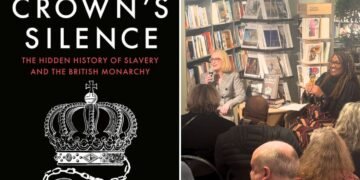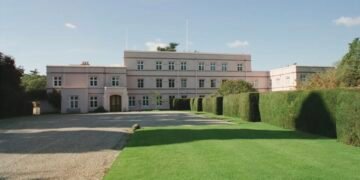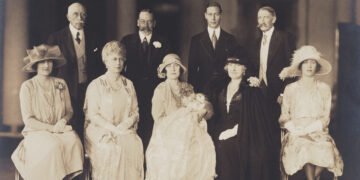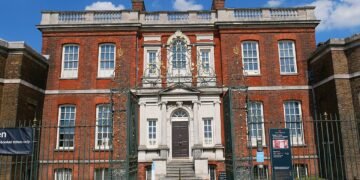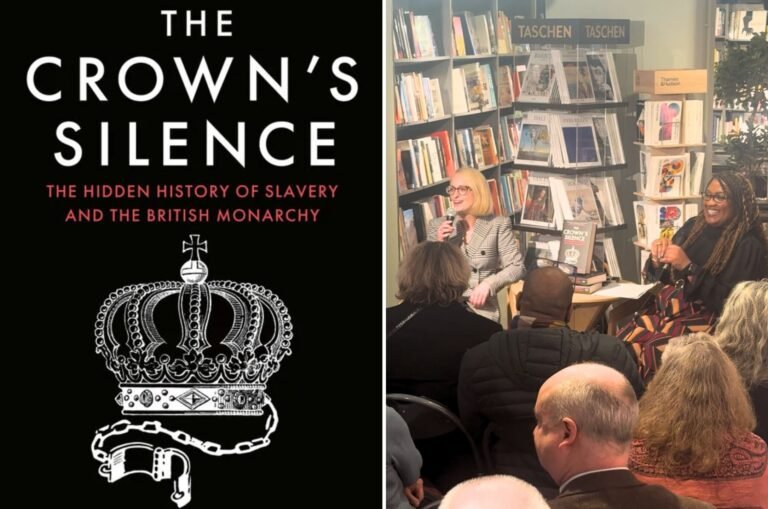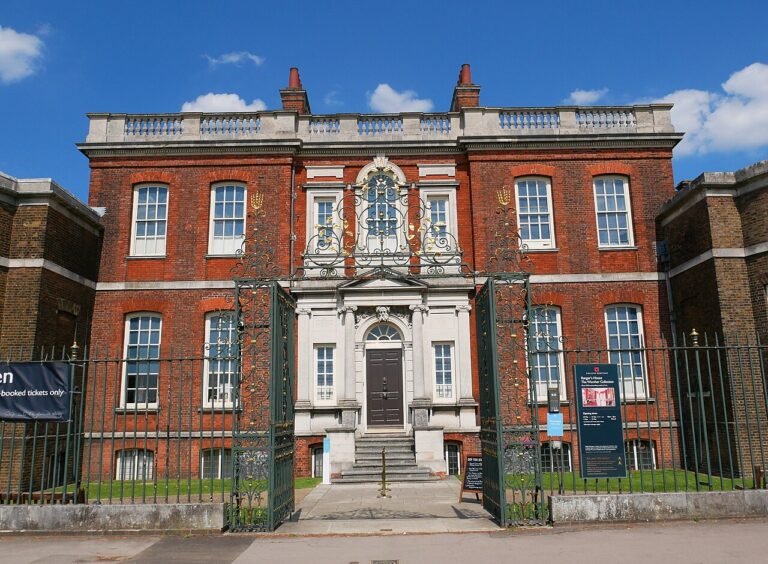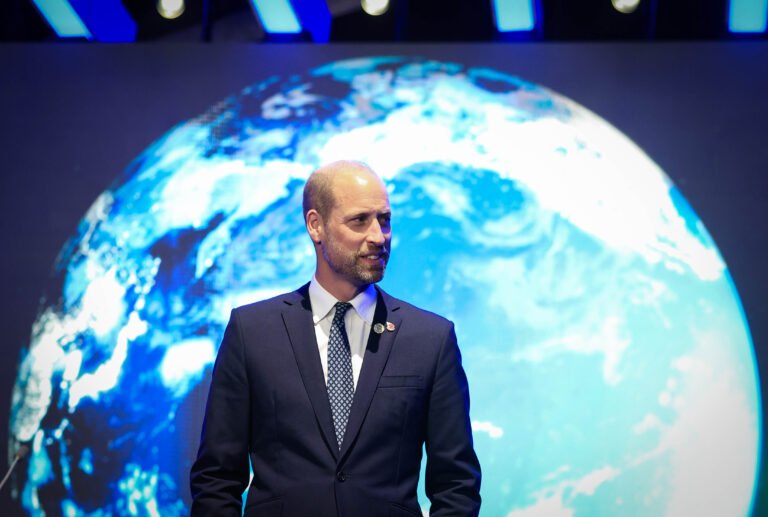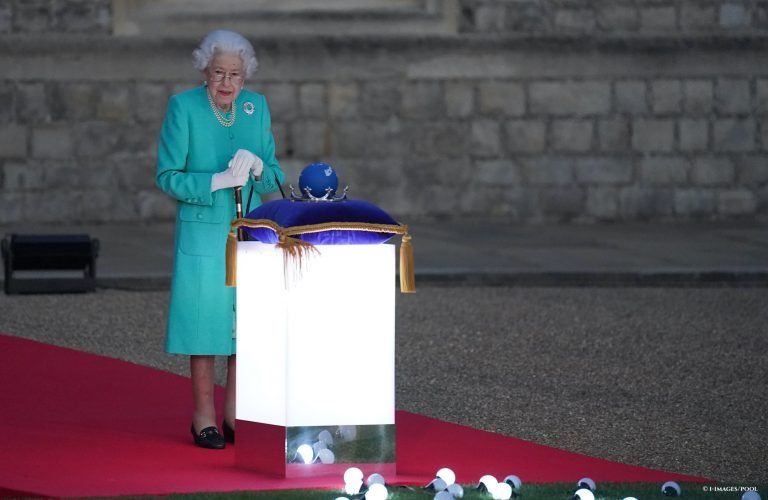Writing exclusively in The Sunday Times, The Duchess of Edinburgh has reflected on her recent visit to Ukraine, to demonstrate solidarity with those impacted by the war and in a continuation of her work to champion survivors of conflict- related sexual violence.
Upon visiting the country, Sophie became the first member of the Royal Family to conduct engagements in Ukraine since the Russian invasion.
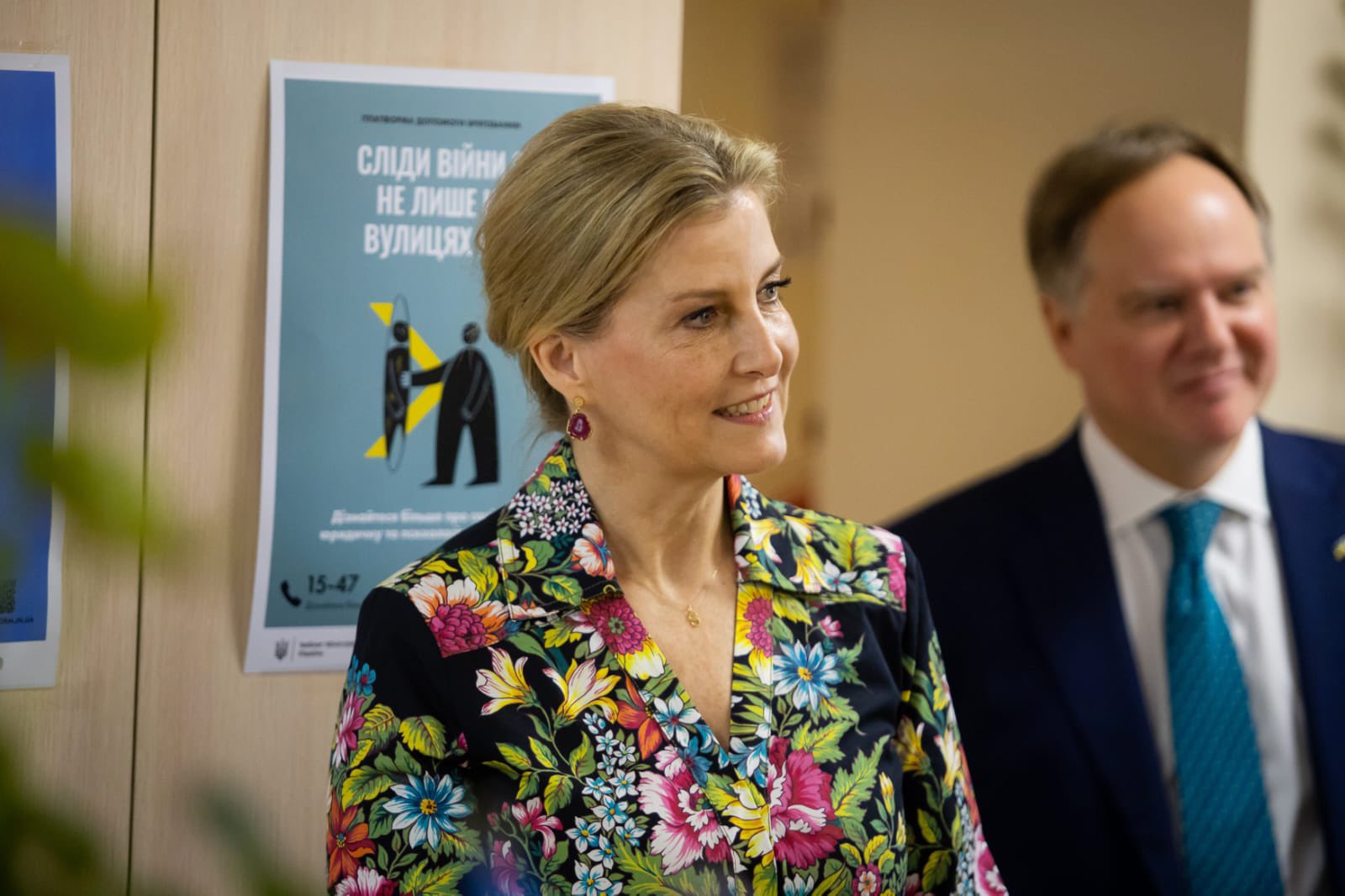
The Duchess opened her piece by stating the Kyiv was ‘unusually quiet’ when she and her small team arrived, which consisted of her private secretary, a Foreign Office adviser, and a security team. Sophie noted how her journey, which involved no flights but instead the rail route which has been unharmed during the war, was ‘quite an experience’.
The visit was her first to a conflict zone, in a bid to draw greater attention to provide support to survivors of conflict-related sexual violence. She highlighted a number of visits to countries affected by war including South Sudan, Kosovo, Iraq, Colombia, Ethiopia and the Democratic Republic of Congo.
‘History is littered with reports of women falling prey to advancing and occupying armies, and it still exists in modern warfare. Historically, this has often been viewed as a casualty or symptom of war, rather than a deliberate tactic to overpower.
‘It is only more recently that increased recognition has been given to these heinous crimes, and society has come to understand that it is used to demean, destroy and control, with the aftermath long felt through stigma, devastating physical and mental health repercussions and children born of rape. It is a weapon requiring no training, no investment, and it is deployed globally.’
Looking back on her first engagement of her trip to a UN survivor relief centre, Sophie spoke to three survivors of sexual violence: two women and one man. Sophie stated that ‘one of the women had with her a gorgeous two-and-a-half-year-old boy from a local orphanage who had a brain injury. Even after suffering terribly at the hands of a number of Russian soldiers over three weeks, this lady’s first thought, when she was able to escape with her husband, was to return to the orphanage where she volunteered and take this vulnerable boy with them’.

Sophie then embarked on a trip to meet with Ukraine’s first lady, Olena Zelenska, whom she has met on a number of occasions. The Duchess highlighted how the First Lady has risen up to the role of being a leader in her own right since the war broke out with ‘grace and determination, championing all Ukrainians affected by this conflict’.
During the meeting, they discussed ‘the importance of access to the survivor centres she has spearheaded, the collation of credible evidence, Ukraine’s reparation scheme and the training of prosecutors, to ensure justice and accountability for these crimes’, according to Sophie.
After her meeting with the First Lady, The President entered, who was said to be ‘beaming’ as he saw The King’ sister-in-law and was ‘quite touched’ when handed a letter from the Monarch. Charles and President Zelensky have met on a number of occasions in the last couple of years, including in February 2023, during the President’s first visit to the UK since the Russian invasion. King Charles also issued a message on the second anniversary of the conflict in Ukraine.

Discussing her engagements throughout the rest of the day, Sophie saw the ‘daily reminder for the citizens of Kyiv of how close the Russian forces came to their capital’, which takes the form of destroyed tanks in front of St Olga’s statue in Mykhailivska Square.
She then travelled to Bucha, which are ‘typical suburbs’ for families and it is ‘one of the places where Russia’s offensive on Kyiv was successfully halted by the Ukrainian army’s destruction of the Romanivka bridge over the Irpin river’.
Speaking to Mayor of Irpin, Oleksandr Markushyn, the mother-of-two heard how the Mayor and ‘500 comrades held the Russians back until Ukraine’s military arrived. In all, 290 Irpin citizens died, but many more were saved’.
The Duchess noted how it was ‘impressive’ how quickly both Bucha and Irpin had been rebuilt in the wake of the attacks, with most evidence of the attack being erased, but ‘bullet-holes pepper many houses and walls, and the trauma they [the people of Bucha and Irpin] experienced is clearly displayed in their eyes’.
Рада вітати в Україні Її Королівську Високість Герцогиню Единбурзьку Софі. У своїй громадській діяльності вона опікується, зокрема, боротьбою із сексуальними злочинами під час насильства –на жаль, актуальною для нас темою. Подякувала їй за сміливість особисто підтримати українців pic.twitter.com/CdgMUpLAiU
— Olena Zelenska / Олена Зеленська (@ZelenskaUA) April 30, 2024
Sophie saw the mass graves of where 500 victims are buried, she was shown around the burial site by Father Andriy, a priest in Bucha, who pointed out the names of ‘his friends, whole families he buried while under threat of fire, and a picture of his fellow priest, whose body lay crumpled and riddled with bullets’.
Andriy also showed the Royal a number of photographs of the events that happened which showed ‘the brutality, the burials and the exhumations’ of the attacks.

Sophie concluded her visit to Ukraine at the British ambassador’s residence, where she met ‘civil society leaders from across Ukraine who are grappling with many problems the conflict is bringing, starting with trying to understand the scale of the violence and torture’ and adds how ‘their efforts also concentrate on helping the individuals and families who are internally displaced and without work who are beginning to struggle to afford food and accommodation’.
Since returning to back to the UK, Sophie has been told that she was ‘brave or courageous’ for visiting the country. However, she went on to state that she is neither – the brave are ‘those who have endured extreme violence and survived’, whilst the courageous are ‘those who have reported the crimes committed against them’.
‘Inevitably it was sad and emotional, and the painful stories and images, as with all my visits to places of conflict, will live with me.’

Sophie hoped that her visit will shine a light on how areas of conflict are given more ‘well-funded early systems of support for survivors and those who have been internally displaced, so that medical and psychological interventions are accessible, alongside the collation of evidence for future prosecutions and the de-stigmatisation of victims’.
‘While others in positions of leadership engage with the politics of war, I will endeavour to place conflict-related sexual violence on the table as a devastating consequence. It is one that is deserving of our attention, empathy and understanding, and to amplify the voices of survivors, who must be heard.’

